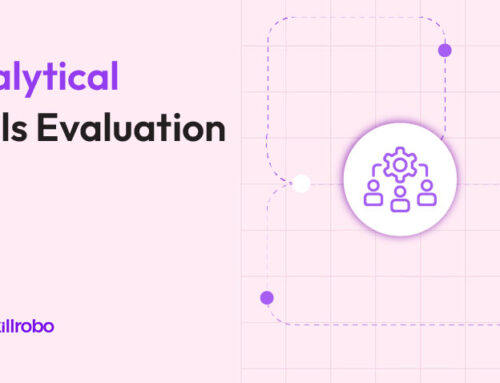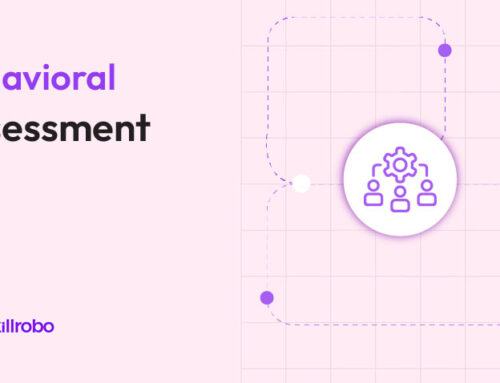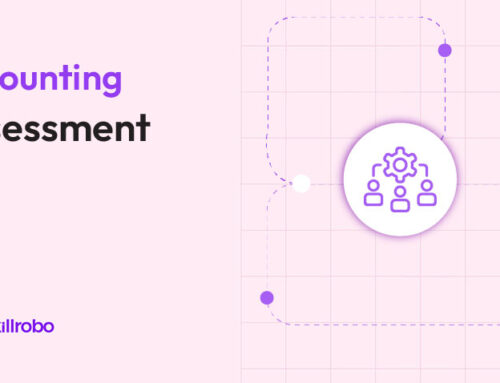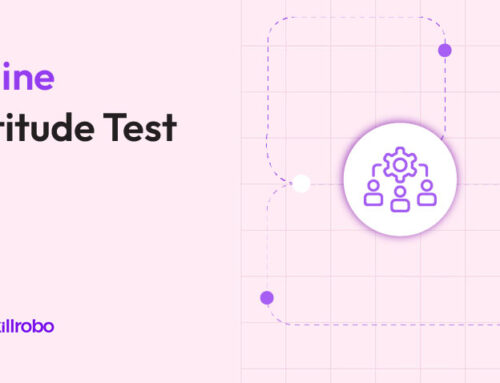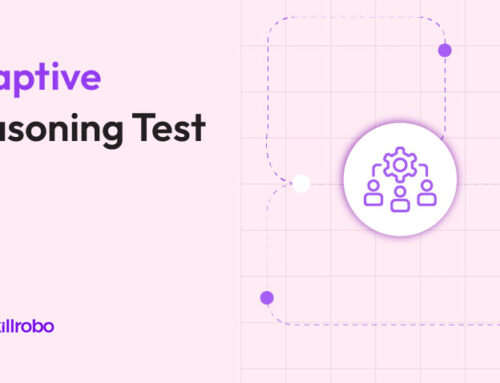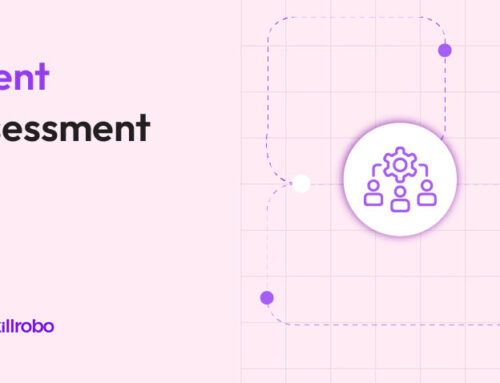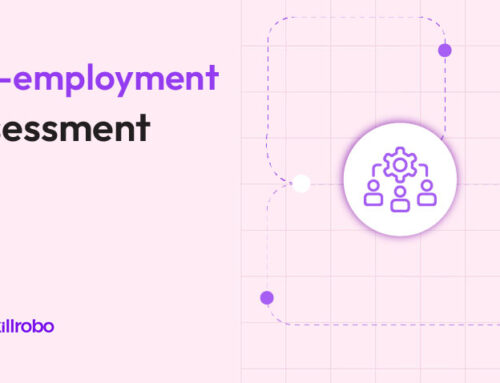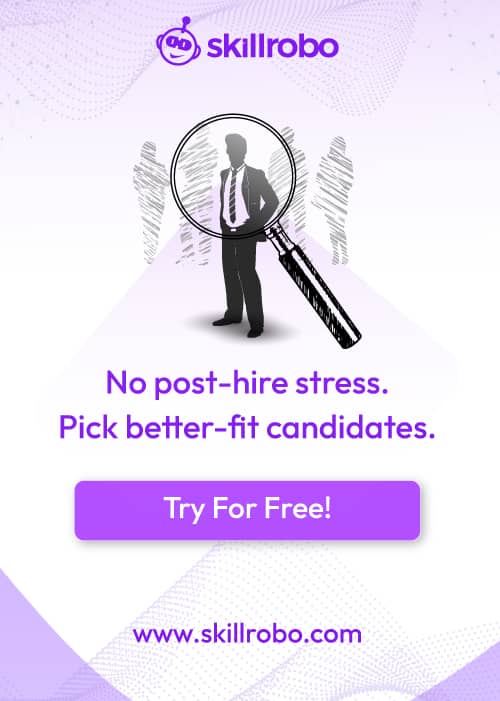Table of Contents
Related articles
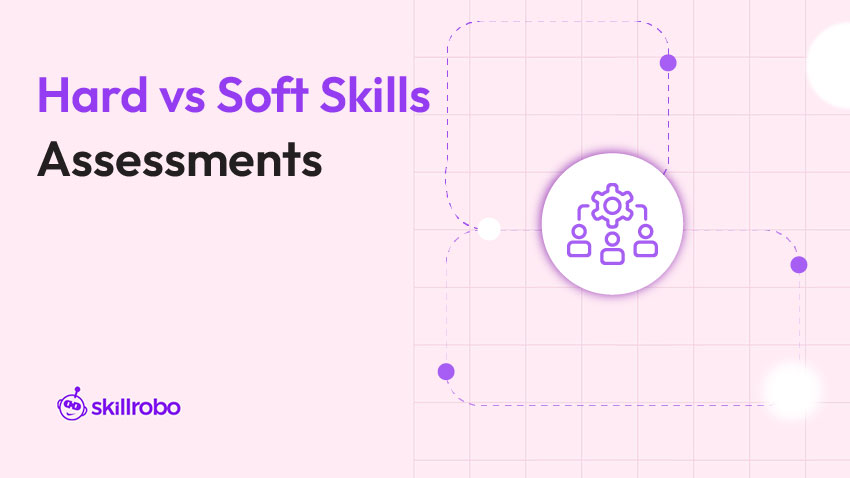
Key Takeaways
- Soft skill assessments evaluate interpersonal and behavioral traits essential for teamwork, adaptability, and communication.
- Hard skill assessments measure job-specific knowledge or technical abilities relevant to a particular role.
- A balanced approach to evaluating both skill types results in more effective, long-term hires.
- Integrating structured assessments ensures fair, consistent, and data-driven hiring decisions.
In team-oriented workplaces, hiring the right candidate is no longer just about qualifications or certifications. It’s about finding people who not only can do the job but will do it well in a team, communicate clearly, and adapt to change. This is where assessing both soft and hard skills becomes crucial in recruitment.
The evolving nature of work has made soft skills just as important, if not more so, than hard skills. With the rise of hybrid work environments, cross-functional teams, and remote collaboration, organizations now look for well-rounded candidates who can thrive in dynamic, people-focused settings.
While hard skills speak to a candidate’s technical knowledge or specialized training, soft skills reflect their communication style, emotional intelligence, and ability to collaborate. Employers who focus on one while ignoring the other often end up with mismatched hires. Understanding the difference and knowing how to assess both effectively can make or break the quality of your hiring process.
In this blog, we’ll explore the difference between soft and hard skills, how to assess them effectively, and when to prioritize one over the other during hiring.
What Are Hard Skills?
Hard skills are teachable, measurable abilities that are often job-specific. These include technical proficiencies, software knowledge, language fluency, and data analysis, among others. These skills can typically be learned through education, certifications, training programs, or on-the-job experience.
For example, a developer might be tested on their knowledge of Python, while a graphic designer could be evaluated based on their ability to use Adobe Creative Suite. These skills can usually be verified through certifications, assignments, or assessments that demonstrate clear competence.
Hard skills play a foundational role in most hiring decisions. They are the functional capabilities required to execute specific job duties and deliver results. As such, many organizations use them as a screening criterion to shortlist qualified candidates before progressing to deeper evaluation stages.
Examples of Hard Skills:
- Programming languages (e.g., JavaScript, Python)
- Accounting and budgeting
- Foreign language fluency
- Operating machinery
- Data analysis
- CRM or ERP software proficiency
- Technical writing
- Statistical modeling
- Project management tools (e.g., MS Project, Trello)
- Legal or compliance knowledge (for regulated industries)
Hard skills are often the baseline requirement for being considered for a role. Without them, a candidate may not even qualify for an interview. However, technical proficiency alone rarely guarantees job success. Skills must also be kept current through continuous learning, especially in fast-evolving industries like tech, healthcare, or finance. And once on the job, collaboration, adaptability, and communication are equally critical to achieving long-term success.. Without them, a candidate may not even qualify for an interview. However, technical proficiency alone rarely guarantees job success.
What Are Soft Skills?
Soft skills are the interpersonal qualities that determine how someone works with others. They include traits like communication, leadership, teamwork, adaptability, and problem-solving. While harder to quantify, soft skills often dictate long-term job success, especially in roles that require collaboration, innovation, or leadership.
These skills influence how employees interact, navigate challenges, and contribute to team success. Unlike hard skills, soft skills aren’t always taught in formal settings; they are shaped by personality, life experiences, and emotional intelligence. However, they can be nurtured and strengthened over time through mentoring, self-awareness, and feedback.
For instance, a customer service rep might know the product inside out (hard skill), but without patience and empathy (soft skills), they may not deliver a great customer experience. Likewise, a project manager might be proficient in planning tools, but if they lack communication and delegation skills, project execution will suffer.
Soft skills are especially crucial in leadership positions, cross-functional teams, and client-facing roles where interpersonal interactions can impact team dynamics or business outcomes. They’re also essential in fast-paced environments where change is constant, and collaboration is key.
Examples of Soft Skills:
- Communication
- Emotional intelligence
- Teamwork and collaboration
- Leadership
- Time management
- Adaptability
- Conflict resolution
- Critical thinking
- Decision-making
- Creativity
Soft skills are essential for building a healthy work environment. They influence how teams collaborate, how leaders manage, and how individuals handle pressure or change. Organizations that prioritize soft skills in hiring often see stronger engagement, better morale, and long-term employee success.. They influence how teams collaborate, how leaders manage, and how individuals handle pressure or change.
Why Both Matter in Hiring
Understanding the importance of balancing both skill types is critical—after all, skill tests have proven to be highly effective in hiring the right talent.
Relying solely on hard skills during recruitment may get you someone who can perform the tasks but might struggle to work with a team or adapt to feedback. Similarly, hiring only for soft skills might bring in a great communicator who lacks the technical proficiency to do the job well.
Hard skills enable someone to start strong; soft skills determine whether they stay strong. When you consider both, you reduce turnover, improve cultural alignment, and enhance team performance.
For example, in tech-driven roles, technical skills are necessary to write clean code, but collaboration with design, product, and QA teams often determines overall project success. In client-facing roles like consulting or account management, subject expertise must be combined with relationship-building and communication to deliver value.
How to Assess Hard Skills
When it comes to evaluating technical capabilities, it helps to design tests that align closely with real job tasks.
Hard skills are easier to assess because they are objective and measurable. Platforms with advanced testing capabilities offer structured ways to evaluate these skills consistently across all candidates.
- Customizable role-based assessments: Design tests that directly reflect the technical requirements of the job, ensuring every question serves a purpose.
- Job simulation tests: Use task-based evaluations that replicate on-the-job responsibilities like report creation, system navigation, or financial analysis.
- Automated scoring and analytics: Generate real-time reports that detail candidate performance, time taken, and accuracy across different sections.
- Coding or domain-specific challenges: Assess hands-on technical knowledge through project-based tasks, especially useful in IT, engineering, or data roles.
These methods allow hiring teams to evaluate hard skills in a controlled, bias-free environment. They not only confirm what a candidate knows, but also how effectively they can apply that knowledge to real-world tasks.
How to Assess Soft Skills
For evaluating interpersonal capabilities, it’s important to assess soft skills using structured and scenario-based approaches.
Soft skills require a more nuanced approach. Unlike hard skills, they’re not always visible in a resume or test result. However, they can be effectively evaluated using a mix of structured tools and behavioral techniques:
- Situational judgment tests (SJTs): Present real-world scenarios and ask candidates how they’d respond. These are useful for assessing decision-making, empathy, and customer-handling skills.
- Behavioral interviews: Use structured questions like “Tell me about a time you resolved a team conflict” to uncover past behaviors and predict future actions.
- Personality assessments: Standardized tests help understand communication preferences, stress responses, and team dynamics.
- Group exercises or role-plays: These simulate collaborative environments where recruiters can observe interpersonal interactions, leadership, and listening skills.
- Peer feedback: For internal hires or referrals, previous team input can offer insights into behavioral traits.
The key is consistency—use the same tools and evaluation criteria for all candidates to ensure fairness.
When to Prioritize One Over the Other
Employers need to consider skill tests importance to decide when to emphasize soft or hard skills, based on role-specific needs.
The weight given to soft vs hard skills depends on the role, the organizational structure, and the type of interaction the job demands. Striking the right balance between the two depends on clearly understanding the core purpose and daily responsibilities of the position.
- Tech-heavy roles (e.g., software engineers, data analysts): Hard skills are essential for productivity, precision, and innovation. While the ability to code, manage databases, or analyze data is non-negotiable, collaboration with cross-functional teams and effective communication of technical concepts are increasingly valued.
- Leadership roles (e.g., project managers, team leads): Here, soft skills often outweigh hard skills. Strategic thinking, emotional intelligence, conflict resolution, and the ability to inspire a team are critical for success. Leaders must align people and resources, not just execute technical tasks.
- Client-facing roles (e.g., sales, consulting): Soft skills such as persuasion, listening, relationship-building, and empathy often take precedence. Even if a candidate knows the product or service well, the ability to build trust and respond effectively to customer needs is what drives business outcomes.
- Support and admin roles (e.g., customer service, office administration): A balanced mix is essential. These roles demand reliability, efficiency, and attention to detail (hard skills), along with patience, communication, and adaptability (soft skills) to navigate frequent interactions with colleagues or customers.
- Creative roles (e.g., marketing, content creation): While proficiency with tools and platforms is important, creativity, originality, and collaborative thinking often shape the success of creative work. The ability to take feedback and work within a team dynamic can be just as valuable as technical execution.
Understanding job context, team dynamics, and company culture is crucial when determining which skill type to emphasize. A well-matched candidate aligns not only with the technical demands of the role but also with the human and relational aspects that define success within the organization.
How Skillrobo Supports Both Skill Assessments
To streamline both soft and hard skill evaluations, organizations often rely on assessment tools that provide accurate, real-time insights.
Skillrobo offers a robust platform to assess both soft and hard skills effectively through:
- Custom Test Creation: Build job-specific assessments tailored to both technical and interpersonal competencies.
- Situational Judgment and Personality Tests: Evaluate traits like communication, empathy, leadership, and decision-making.
- Real-Time Reporting: Access dashboards with detailed insights into candidate scores, test completion time, and ranking.
- Simulation and Task-Based Tests: Replicate actual job functions like code reviews, report drafting, or conflict resolution scenarios.
- Scalable Assessments: Assess multiple candidates simultaneously without compromising depth or quality.
- Branded Test Environments: Deliver a cohesive, professional candidate experience with fully customizable branding.
With Skillrobo, recruiters and hiring managers can structure a balanced evaluation strategy that supports smarter hiring at scale.
Conclusion
Soft skills and hard skills are two sides of the same coin in hiring. While technical abilities ensure a candidate can do the job, soft skills determine how they do it, with others, under pressure, and over time. A thoughtful, balanced assessment approach helps build stronger teams, reduce attrition, and create a more cohesive workplace.
By using structured assessments to measure both skill sets, organizations can reduce bias, enhance team compatibility, and ensure each hire supports long-term business goals. Hiring isn’t just about filling a vacancy—it’s about finding the right person who can contribute both technically and culturally.
With tools that measure both dimensions, your hiring process becomes more inclusive, data-driven, and future-ready. The smartest hires aren’t just skilled; they’re also adaptable, communicative, and aligned with your company culture.
Looking to hire with confidence? Sign up and start assessing both hard and soft skills to build a well-rounded, high-performing team.

Key Takeaways
- Soft skill assessments evaluate interpersonal and behavioral traits essential for teamwork, adaptability, and communication.
- Hard skill assessments measure job-specific knowledge or technical abilities relevant to a particular role.
- A balanced approach to evaluating both skill types results in more effective, long-term hires.
- Integrating structured assessments ensures fair, consistent, and data-driven hiring decisions.
In team-oriented workplaces, hiring the right candidate is no longer just about qualifications or certifications. It’s about finding people who not only can do the job but will do it well in a team, communicate clearly, and adapt to change. This is where assessing both soft and hard skills becomes crucial in recruitment.
The evolving nature of work has made soft skills just as important, if not more so, than hard skills. With the rise of hybrid work environments, cross-functional teams, and remote collaboration, organizations now look for well-rounded candidates who can thrive in dynamic, people-focused settings.
While hard skills speak to a candidate’s technical knowledge or specialized training, soft skills reflect their communication style, emotional intelligence, and ability to collaborate. Employers who focus on one while ignoring the other often end up with mismatched hires. Understanding the difference and knowing how to assess both effectively can make or break the quality of your hiring process.
In this blog, we’ll explore the difference between soft and hard skills, how to assess them effectively, and when to prioritize one over the other during hiring.
What Are Hard Skills?
Hard skills are teachable, measurable abilities that are often job-specific. These include technical proficiencies, software knowledge, language fluency, and data analysis, among others. These skills can typically be learned through education, certifications, training programs, or on-the-job experience.
For example, a developer might be tested on their knowledge of Python, while a graphic designer could be evaluated based on their ability to use Adobe Creative Suite. These skills can usually be verified through certifications, assignments, or assessments that demonstrate clear competence.
Hard skills play a foundational role in most hiring decisions. They are the functional capabilities required to execute specific job duties and deliver results. As such, many organizations use them as a screening criterion to shortlist qualified candidates before progressing to deeper evaluation stages.
Examples of Hard Skills:
- Programming languages (e.g., JavaScript, Python)
- Accounting and budgeting
- Foreign language fluency
- Operating machinery
- Data analysis
- CRM or ERP software proficiency
- Technical writing
- Statistical modeling
- Project management tools (e.g., MS Project, Trello)
- Legal or compliance knowledge (for regulated industries)
Hard skills are often the baseline requirement for being considered for a role. Without them, a candidate may not even qualify for an interview. However, technical proficiency alone rarely guarantees job success. Skills must also be kept current through continuous learning, especially in fast-evolving industries like tech, healthcare, or finance. And once on the job, collaboration, adaptability, and communication are equally critical to achieving long-term success.. Without them, a candidate may not even qualify for an interview. However, technical proficiency alone rarely guarantees job success.
What Are Soft Skills?
Soft skills are the interpersonal qualities that determine how someone works with others. They include traits like communication, leadership, teamwork, adaptability, and problem-solving. While harder to quantify, soft skills often dictate long-term job success, especially in roles that require collaboration, innovation, or leadership.
These skills influence how employees interact, navigate challenges, and contribute to team success. Unlike hard skills, soft skills aren’t always taught in formal settings; they are shaped by personality, life experiences, and emotional intelligence. However, they can be nurtured and strengthened over time through mentoring, self-awareness, and feedback.
For instance, a customer service rep might know the product inside out (hard skill), but without patience and empathy (soft skills), they may not deliver a great customer experience. Likewise, a project manager might be proficient in planning tools, but if they lack communication and delegation skills, project execution will suffer.
Soft skills are especially crucial in leadership positions, cross-functional teams, and client-facing roles where interpersonal interactions can impact team dynamics or business outcomes. They’re also essential in fast-paced environments where change is constant, and collaboration is key.
Examples of Soft Skills:
- Communication
- Emotional intelligence
- Teamwork and collaboration
- Leadership
- Time management
- Adaptability
- Conflict resolution
- Critical thinking
- Decision-making
- Creativity
Soft skills are essential for building a healthy work environment. They influence how teams collaborate, how leaders manage, and how individuals handle pressure or change. Organizations that prioritize soft skills in hiring often see stronger engagement, better morale, and long-term employee success.. They influence how teams collaborate, how leaders manage, and how individuals handle pressure or change.
Why Both Matter in Hiring
Understanding the importance of balancing both skill types is critical—after all, skill tests have proven to be highly effective in hiring the right talent.
Relying solely on hard skills during recruitment may get you someone who can perform the tasks but might struggle to work with a team or adapt to feedback. Similarly, hiring only for soft skills might bring in a great communicator who lacks the technical proficiency to do the job well.
Hard skills enable someone to start strong; soft skills determine whether they stay strong. When you consider both, you reduce turnover, improve cultural alignment, and enhance team performance.
For example, in tech-driven roles, technical skills are necessary to write clean code, but collaboration with design, product, and QA teams often determines overall project success. In client-facing roles like consulting or account management, subject expertise must be combined with relationship-building and communication to deliver value.
How to Assess Hard Skills
When it comes to evaluating technical capabilities, it helps to design tests that align closely with real job tasks.
Hard skills are easier to assess because they are objective and measurable. Platforms with advanced testing capabilities offer structured ways to evaluate these skills consistently across all candidates.
- Customizable role-based assessments: Design tests that directly reflect the technical requirements of the job, ensuring every question serves a purpose.
- Job simulation tests: Use task-based evaluations that replicate on-the-job responsibilities like report creation, system navigation, or financial analysis.
- Automated scoring and analytics: Generate real-time reports that detail candidate performance, time taken, and accuracy across different sections.
- Coding or domain-specific challenges: Assess hands-on technical knowledge through project-based tasks, especially useful in IT, engineering, or data roles.
These methods allow hiring teams to evaluate hard skills in a controlled, bias-free environment. They not only confirm what a candidate knows, but also how effectively they can apply that knowledge to real-world tasks.
How to Assess Soft Skills
For evaluating interpersonal capabilities, it’s important to assess soft skills using structured and scenario-based approaches.
Soft skills require a more nuanced approach. Unlike hard skills, they’re not always visible in a resume or test result. However, they can be effectively evaluated using a mix of structured tools and behavioral techniques:
- Situational judgment tests (SJTs): Present real-world scenarios and ask candidates how they’d respond. These are useful for assessing decision-making, empathy, and customer-handling skills.
- Behavioral interviews: Use structured questions like “Tell me about a time you resolved a team conflict” to uncover past behaviors and predict future actions.
- Personality assessments: Standardized tests help understand communication preferences, stress responses, and team dynamics.
- Group exercises or role-plays: These simulate collaborative environments where recruiters can observe interpersonal interactions, leadership, and listening skills.
- Peer feedback: For internal hires or referrals, previous team input can offer insights into behavioral traits.
The key is consistency—use the same tools and evaluation criteria for all candidates to ensure fairness.
When to Prioritize One Over the Other
Employers need to consider skill tests importance to decide when to emphasize soft or hard skills, based on role-specific needs.
The weight given to soft vs hard skills depends on the role, the organizational structure, and the type of interaction the job demands. Striking the right balance between the two depends on clearly understanding the core purpose and daily responsibilities of the position.
- Tech-heavy roles (e.g., software engineers, data analysts): Hard skills are essential for productivity, precision, and innovation. While the ability to code, manage databases, or analyze data is non-negotiable, collaboration with cross-functional teams and effective communication of technical concepts are increasingly valued.
- Leadership roles (e.g., project managers, team leads): Here, soft skills often outweigh hard skills. Strategic thinking, emotional intelligence, conflict resolution, and the ability to inspire a team are critical for success. Leaders must align people and resources, not just execute technical tasks.
- Client-facing roles (e.g., sales, consulting): Soft skills such as persuasion, listening, relationship-building, and empathy often take precedence. Even if a candidate knows the product or service well, the ability to build trust and respond effectively to customer needs is what drives business outcomes.
- Support and admin roles (e.g., customer service, office administration): A balanced mix is essential. These roles demand reliability, efficiency, and attention to detail (hard skills), along with patience, communication, and adaptability (soft skills) to navigate frequent interactions with colleagues or customers.
- Creative roles (e.g., marketing, content creation): While proficiency with tools and platforms is important, creativity, originality, and collaborative thinking often shape the success of creative work. The ability to take feedback and work within a team dynamic can be just as valuable as technical execution.
Understanding job context, team dynamics, and company culture is crucial when determining which skill type to emphasize. A well-matched candidate aligns not only with the technical demands of the role but also with the human and relational aspects that define success within the organization.
How Skillrobo Supports Both Skill Assessments
To streamline both soft and hard skill evaluations, organizations often rely on assessment tools that provide accurate, real-time insights.
Skillrobo offers a robust platform to assess both soft and hard skills effectively through:
- Custom Test Creation: Build job-specific assessments tailored to both technical and interpersonal competencies.
- Situational Judgment and Personality Tests: Evaluate traits like communication, empathy, leadership, and decision-making.
- Real-Time Reporting: Access dashboards with detailed insights into candidate scores, test completion time, and ranking.
- Simulation and Task-Based Tests: Replicate actual job functions like code reviews, report drafting, or conflict resolution scenarios.
- Scalable Assessments: Assess multiple candidates simultaneously without compromising depth or quality.
- Branded Test Environments: Deliver a cohesive, professional candidate experience with fully customizable branding.
With Skillrobo, recruiters and hiring managers can structure a balanced evaluation strategy that supports smarter hiring at scale.
Conclusion
Soft skills and hard skills are two sides of the same coin in hiring. While technical abilities ensure a candidate can do the job, soft skills determine how they do it, with others, under pressure, and over time. A thoughtful, balanced assessment approach helps build stronger teams, reduce attrition, and create a more cohesive workplace.
By using structured assessments to measure both skill sets, organizations can reduce bias, enhance team compatibility, and ensure each hire supports long-term business goals. Hiring isn’t just about filling a vacancy—it’s about finding the right person who can contribute both technically and culturally.
With tools that measure both dimensions, your hiring process becomes more inclusive, data-driven, and future-ready. The smartest hires aren’t just skilled; they’re also adaptable, communicative, and aligned with your company culture.
Looking to hire with confidence? Sign up and start assessing both hard and soft skills to build a well-rounded, high-performing team.



